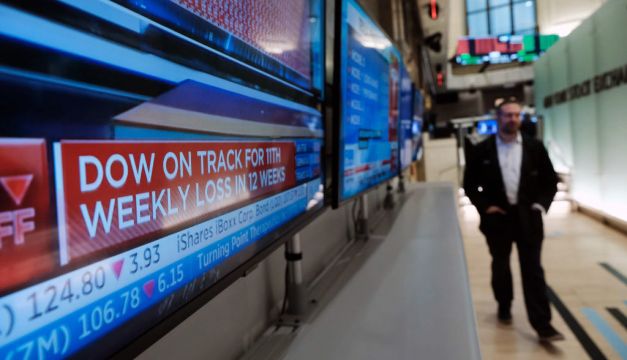US stock indexes dropped on Thursday in a broad sell-off as recession fears grew with moves by central banks around the globe to stamp out rising inflation after the US Federal Reserve's largest rate hike since 1994.
The benchmark S&P 500 was on track for its sixth decline in seven sessions. Stocks rallied on Wednesday as the Fed delivered an aggressive 75 basis point rate hike, as anticipated.
But subsequent rate hikes on Thursday from the central banks of Switzerland and Britain reignited fears that attempts by central banks to curb inflation could lead to sharply slower growth worldwide or a recession.
"It's just getting beaten down. This is a belief that the Fed is going to force a recession, and they are just going to beat this market down until even high net worth investors cry uncle," said Jack Ablin, chief investment officer at Cresset Capital Management in Chicago.
"It's also the put too," Ablin said, referring to the Fed intervention during the Great Financial Crisis to rescue risk-takers. "It was in the interest of keeping the banking system together, but it started a relationship between risk-takers and central banks and inflation is driving a wedge between them."
The Dow Jones Industrial Average fell 847.47 points, or 2.76 per cent, the S&P 500 lost 140.38 points, or 3.70 per cent, and the Nasdaq Composite dropped 505.61 points, or 4.56 per cent.
Hopes the Fed could engineer a soft landing for the economy are fading and analysts at Wells Fargo now see a greater than 50 per cent chance of a recession. Other banks that have warned of rising recession risks include Deutsche Bank and Morgan Stanley.
The benchmark index has slumped about 23 per cent year-to-date and recently confirmed a bear market began on January 3rd, while the Dow Industrials was on the cusp of confirming its own bear market.
The CBOE volatility index, also known as Wall Street's fear gauge, rose 14.21 points to 33.83, slightly below the one-month high of 35.05 touched earlier in the week.







